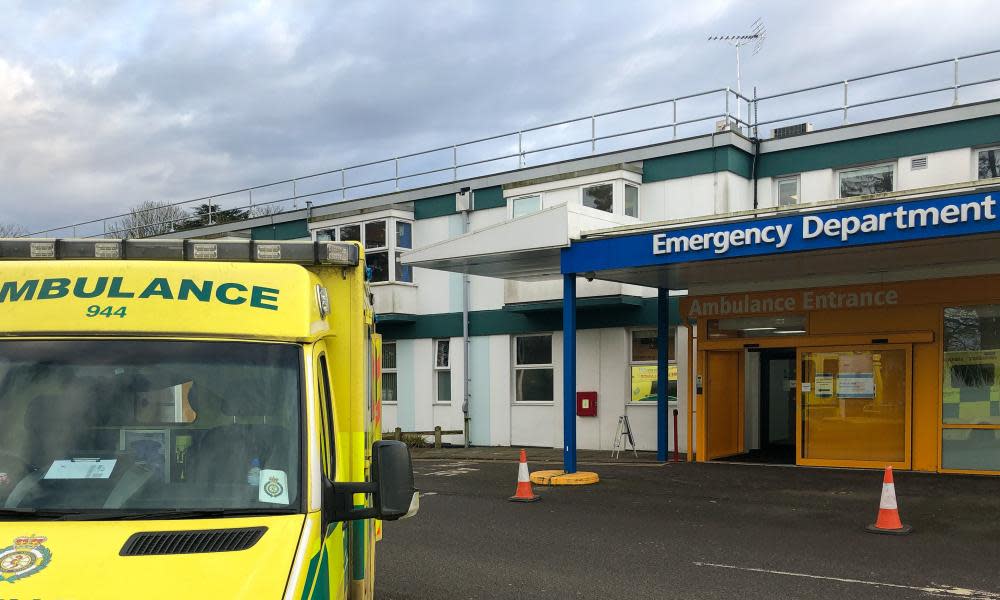Anonymous letter prompts police inquiry into hospital death

A letter from an anonymous whistleblower warning the widower of a 57-year-old woman about errors in her surgery has prompted a coroner to call for a police investigation.
Nigel Parsley, the coroner examining the death of Susan Warby, told her inquest on Thursday that the letter alleged “something had gone wrong during surgery” to treat a perforated bowel at West Suffolk hospital – the local hospital of the health secretary, Matt Hancock – before she died there on 30 August 2018.
Parsley said its contents led him to instruct both the hospital and Suffolk police to conduct an investigation. It included a warning that the wrong fluid had been used in an IV drip into one of Warby’s arteries. Parsley said the detail about the wrong fluid was the only part of the letter relevant to the inquest. He did not reveal what other allegations may also have prompted the call for a police investigation.
Speaking at Ipswich coroner’s court, Parsley said: “Because of the content of the letter, I instructed Suffolk Constabulary and the West Suffolk hospital to conduct an investigation in relation to the allegations contained in the letter. Both the Suffolk Constabulary investigation and the WSH investigations have confirmed the issue regarding the arterial line.”
He added: “No other matters were identified in relation to the investigations into the allegations in the anonymous letter, and no matters were identified which relates to Susan’s inquest.”
Doctors at the hospital have accused bosses of using “bullying and intimidatory” tactics to try to uncover the whistleblower’s identity.
The inquest heard that instead of saline, a solution containing glucose was injected into Warby’s artery and as a result her blood sugar levels increased to exceptional levels. Doctors did not realise their mistake but treated her with insulin to bring the blood glucose levels down. Dr Michael Palmer, a consultant anaesthetist, said incorrectly using insulin in this way carried a risk of starving the brain of the required blood glucose, the inquest heard.
He admitted there was a risk of death or severe brain injury from the mistake. But in Warby’s case she briefly woke up after the insulin treatment suggesting it had not done serious harm, Palmer told the inquest.
Paul Morris, the hospital’s chief nurse, said a serious incident investigation into Warby’s care could not reach a conclusion about whether the use of the wrong fluid contributed to her death. He said the hospital had improved the way it labels and checks liquids used in surgery after the investigation.
The inquest also heard that Warby’s lung was punctured during a procedure to insert a central line into her inner jugular vein. The medic who conducted the insertion was not a doctor but trainee advanced care practitioner and was the most experienced staff member available to do the procedure, the inquest heard.
A statement read out on behalf of her widower, Jon Warby, expressed alarm about this part of her treatment. He said: “I was told Sue’s right lung collapsed as a result of the procedure … I’m concerned that a consultant should have performed the procedure due to Sue being critically ill.”
Referring to Warby’s two sons by a previous marriage, he said: “This has been a very distressing emotional time not only for Brendan, Samuel and I, but all of our families.”
He added: “I want action taken to prevent any of these incidents ever happening again.”
The inquest continues on Friday.

 Yahoo News
Yahoo News 
